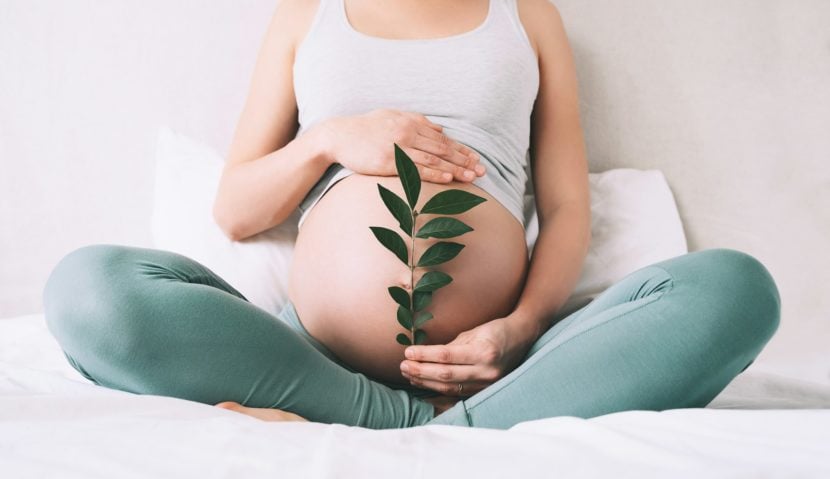PCOS (Polycystic Ovarian Syndrome) affects between 7 – 10% of American women and causes symptoms like irregular menstrual cycles, excess facial hair around the mouth and chin from high testosterone called “hirsutism”, acne, mood changes, weight gain, loss of sleep and fertility problems. The good news is a new study shows a low-carb diet may boost fertility in women with PCOS.
It’s been established that PCOS is caused by a mix of genetic, lifestyle and environmental factors, but how each of these factors affects an individual, and to what degree, has been largely unknown.
One of the most frustrating and potentially devastating effects of PCOS is the persistent issues it can cause with fertility and what a wildcard those issues can be. Some people with PCOS don’t have trouble conceiving at all, while others report that PCOS has made it difficult or impossible to get pregnant.
Can a low-carb diet help women with PCOS get pregnant?
According to the latest research, the answer is yes. A low-carb diet can help women with PCOS get pregnant. A recently published paper shows promise for a low-carb diet in women with PCOS.
The study is the first systematic review with meta-analysis that evaluated evidence of an association between ketogenic diet and reproductive hormone levels among women with PCOS.
170 participants who all met the criteria for the analysis of being diagnosed with PCOS and experiencing fertility issues were included in the analysis.
After 45 days on a low-carb diet of less than 50 grams of carbs per day, testosterone levels dropped significantly, luteinizing to follicle-stimulating hormone ratios normalized, which is a sign of ovulation. Sex-hormone binding globulin increased and overall body composition also improved.
What do these results mean? Fertility can be significantly improved for people with PCOS by following a low-carb diet.
Do you have to go full keto to get results? No.
“Eliminating carbs isn’t necessary according to this study,” says fertility specialist, Erika Hernandez, RN. “You don’t have to go keto or follow a no-carb diet, just keep your carbs under 50 grams per day and see if you get results.”
Hernandez added “A low-carb weight loss diet improves insulin sensitivity and hormone balance. The study showed changes in 45 days meaning you don’t have to go full-blown keto or even go low-carb for a prolonged period to get results. “
What are the key takeaways and tips for PCOS, fertility and a low-carb diet?
- If you have PCOS and experience fertility problems a low-carb diet can help.
- Minimizing carbs, especially empty carbs from ultra-processed foods is a simple way to start.
- Counting carbs for a short period (45 days) and keeping your carb intake under 50 grams during this time is a central component to regulating your hormones that help with fertility.
- Focusing on quality protein and healthy fats can be key for reversing insulin resistance and reducing androgen production, two key factors in boosting fertility.
- Consider asking your OB/GYN to measure your hormone levels before and after following a low-carb diet for 45 days to see if this works for you.
“Better yet,” says Hernandez “print out the study and show this article to your OB/GYN and ask for their opinion and help.”

Natural Brilliance






